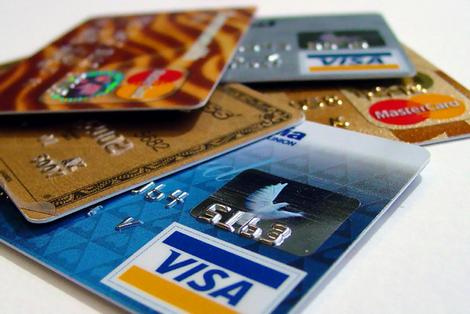When I was in college, there was no shortage of credit card representatives on campus, encouraging students to open a line of credit to build or improve on their credit scores. To entice us even further, every company offered a “free gift” when we signed up (and what college kid doesn’t love free things?). It seemed like a good enough idea at the time, so I opened my first account with little knowledge of how credit cards worked. This was mistake #1, and it led to plenty more until I realized how I should be using it, and how to manage my debt.
Not all credit cards are evil, and in fact, smart spending with them can indeed help to build your credit score. Some people avoid them all together to avoid debt, but this could keep you from renting an apartment, or securing a mortgage or car loan in the future. You can use credit cards to establish a good credit history, as long as you avoid some of the most common mistakes that could get you into trouble.
Mistake #1: You don’t know your credit score. Knowing your score before you apply can save you from applying for cards you don’t qualify for, or it can make you aware of if your credit even needs improving.
Mistake #2: You carry a balance. Many people mistakenly believe that just paying the minimum and keeping a balance is good for your credit score, but in reality, you should pay off the balance every month to build a good repayment history. You’ll also save more by not paying extra interest.
Mistake #3: You make late payments. Failing to pay your bill on time repeatedly can hurt your credit score AND cost you more money, as interest continues to build. Most companies will also charge you an additional late fee. A helpful way to avoid this would be to set up automatic payments, or set up a system to keep track of when and how you’re making payments (such as a spreadsheet, or using BudgetSimple).
Mistake #4: You don’t have the right card. Add this to my pile of mistakes. I chose my first (and one of my only) credit cards based simply on the free gift they were offering if I signed up outside of our student union – a fleece blanket with my university’s logo. Because that was COMPLETELY worth the high interest rate I’d be paying. Not every card is a good fit for everyone, so find something that suits you, and will be beneficial – a low APR, something with travel rewards if you fly frequently, or cash back on purchases made, just to name a few things to look for.
Mistake #5: You’re using too much of your available credit. This was my biggest pitfall. I had a very high spending allowance, which made me feel like I could spend frivolously whenever I wanted. I ended up with more debt than I could feasibly handle, based on my monthly income, and it made it very hard to climb out of that hole. Aim to not charge more to your credit card than you’re able to pay off every month.
Mistake #6: You have too many credit cards. Having too many cards leaves you with too many spending options, opening the door to way more debt than you can manage. Try limiting yourself to one (or maybe even two) that you can monitor closely to avoid taking on more than you can handle.

